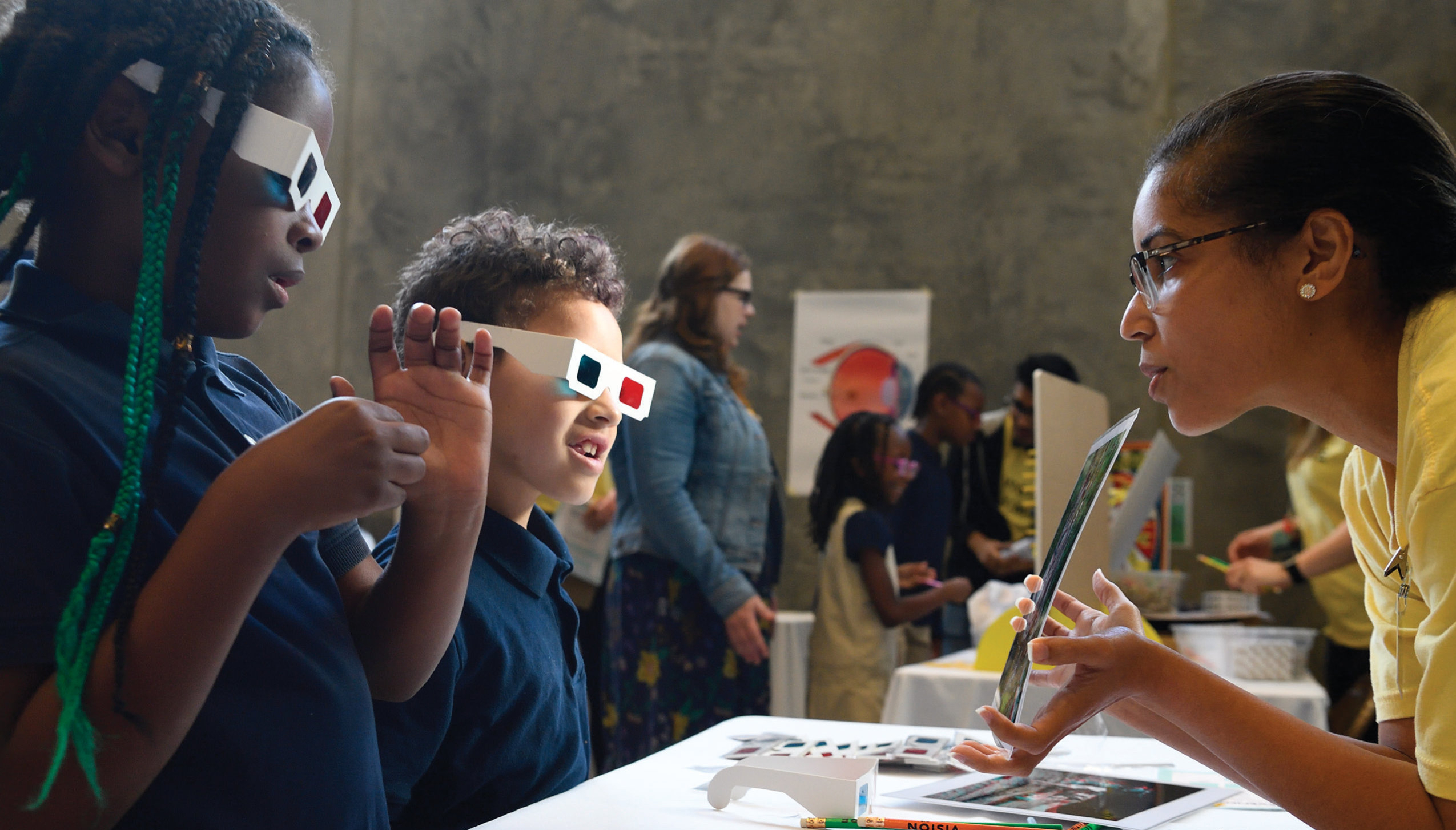The Strategic Plan articulates for Johns Hopkins School of Education a bold vision to transform education through innovative and research-driven solutions. By leveraging university-wide interdisciplinary expertise, the school commits to tackling education’s most complex and pressing challenges. Central to this vision is a dedication to evidence-based practices, innovative technology, and community-driven solutions, ensuring that all learners—locally, nationally, and globally—can thrive in equitable and supportive educational environments. Grounded in values of collaboration, belonging, and continuous discovery, this plan positions Johns Hopkins as a leading force for sustainable, transformative change in education.
Guided by our plan, we will focus on areas of opportunity well-suited to our expertise, well-represented by our institutional connections, and in congruence with our mission and vision. We will prioritize and fund research initiatives, academic programs, tenure-track faculty and investigator positions, and staff roles that:
- utilize connections between our research centers and academic programs to meet the needs and aspirations of current and future educators and counselors;
- leverage innovative collaborations with other Johns Hopkins divisions; and
- give our students unique opportunities to learn by engaging in the vital work of developing solutions that produce sustainable and equitable outcomes for all learners.
Our Strategic Goals
- Promoting enhanced faculty excellence in teaching and scholarly productivity; hiring and supporting tenure-track faculty and investigators who secure competitive support for research-based solutions and influence policy and practice
- Establishing a dynamic academic core in research methods to give our students a strong foundation in Johns Hopkins’ area of global leadership
- Integrating inquiry and teaching through intentional, reciprocal connections between our research center activities and academic programs
- Supporting faculty, staff, and student efforts to translate research for practitioners and policymakers and engage with communities in ways that solve pressing education problems, especially those that examine important but understudied issues in education
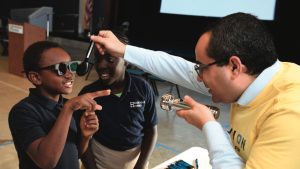
- Supporting sustained innovation in academics and research to drive education practice and policy forward, engage communities in co-creating solutions, and leverage Johns Hopkins University expertise, investment, and capacity with greatest impact
- Employing technology, such as data science and artificial intelligence, as a vehicle for changing the status quo and transforming education
- Promoting health and well-being as essential to educational equity– Employing pluralistic and entrepreneurial approaches in education to create more effective and equitable organizations
- Utilizing expertise in the science of learning to enhance how all individuals—including those with diverse needs—learn across various environments
- Increasing interdivisional faculty engagement, including joint appointments, and collaborative research projects with colleagues across Johns Hopkins
- Launching interdivisional student experiences and training to infuse our work with fresh perspectives and extend our expertise, enhancing local and international connections
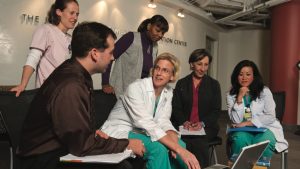
- Enhancing student experiences and outcomes by building learning communities, enhancing academic support, and strengthening career connections
- Utilizing shared governance to leverage the collective expertise of our faculty and staff in organizational change and strategic investments
- Illuminating career pathways and professional development opportunities for faculty and staff
- Invigorating shared sense of community among students, faculty, staff, alumni, and friends through opportunities for connection within our renovated Education Building
- Strengthening our culture of belonging through effective implementation of inclusive initiatives
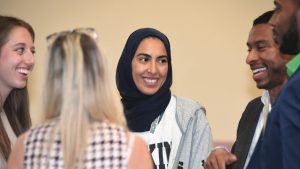
Our Progress
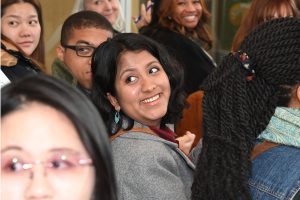
Shaping the Future Together
Faculty, staff, students, alumni, and national advisory council members engaged in meaningful conversations to envision the future of the School of Education—laying the groundwork for a bold new strategic plan. Subsequent events like our 2024 EdFest offered further opportunities to gain insight from our community.

Renovation & Iteration
We temporarily moved out of our Homewood campus building to begin full renovations centered on the student experience, and on the common goals coming into focus in drafts of our strategic plan: creating a community of belonging, and catalyzing greater opportunities for collaboration across our research and scholarly enterprise.
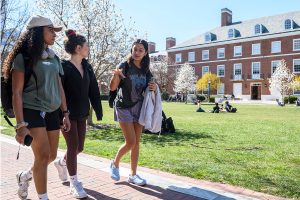
We launched our Strategic Plan
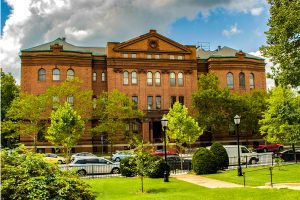
A New Chapter Begins
We can’t wait to move back into a transformed School of Education home—a space intentionally designed for collaboration, inclusion, and innovation in service of our students and learning communities across the globe.
Johns Hopkins School of Education
Christopher C. Morphew
Dean, School of Education
"Our plan is one of action: To engage the toughest education challenges and enact the most effective, equitable, sustainable solutions, together. That’s who we are, it's what we do, and it's how we can best serve our students and society."
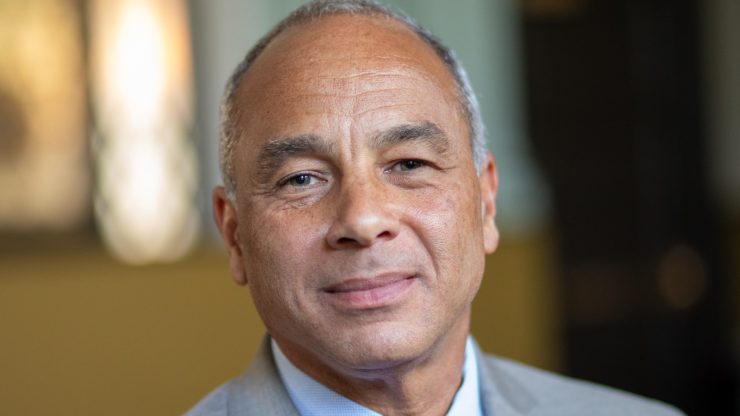
At the Johns Hopkins School of Education, we’re passionate about providing our partners with the tools and knowledge they need to achieve their goals — and create a better future for everyone. Our approach is grounded in evidence, and we are committed to creating positive change through innovative solutions that empower educators, students, and our communities.
Our Vision
Our Mission
Our Values
-

-
Evidence
Doing the work that matters. We use evidence-based practices, prioritize authenticity and excellence, and lead efforts to impact systems and improve life outcomes locally and globally.
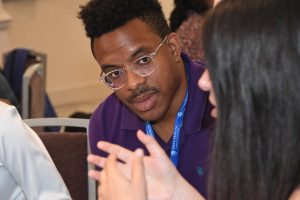
-
Discovery
Nurturing personal and collective understanding. Our curiosity drives continuous exploration and growth to be relevant to and supportive of ourselves and our learning communities.
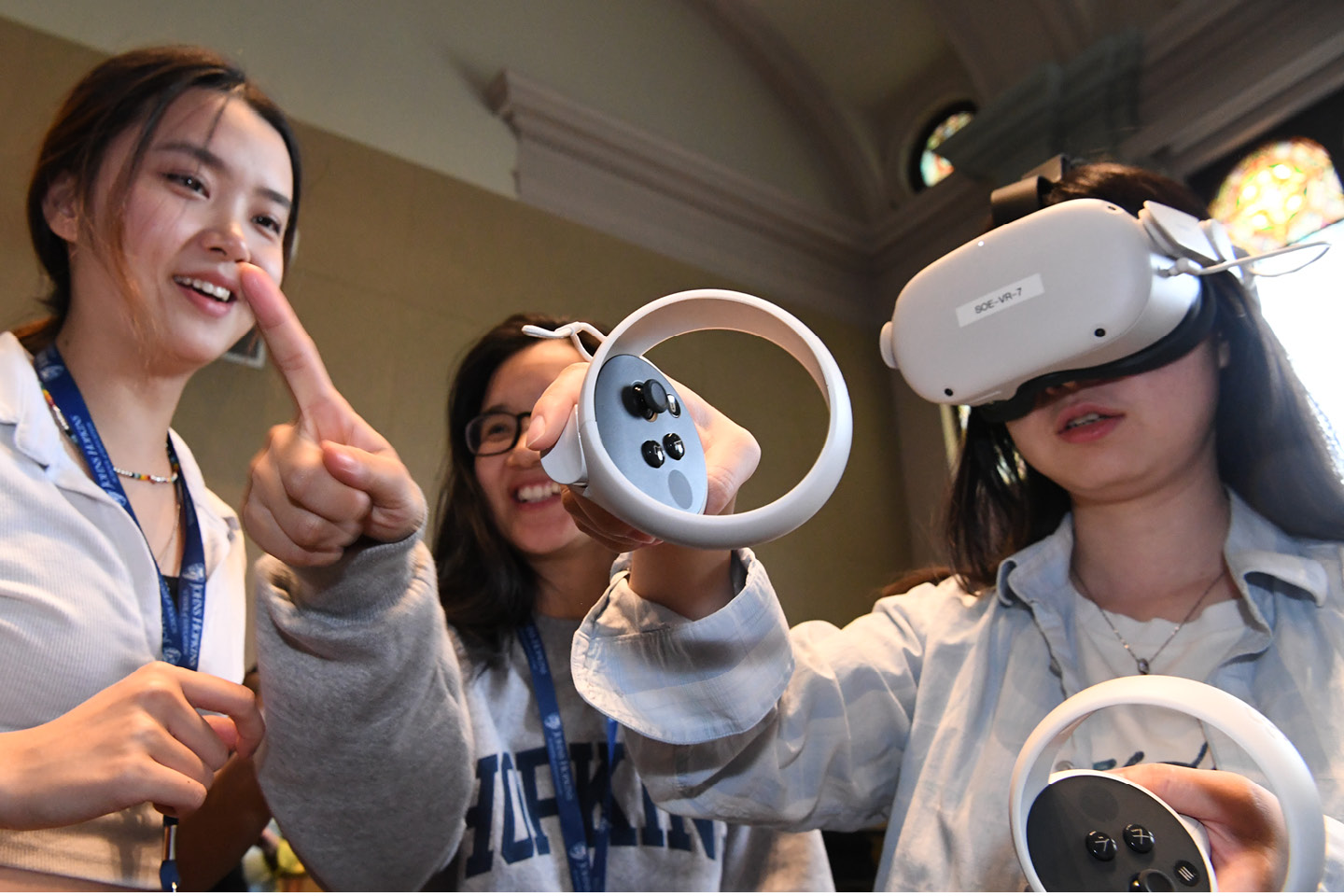
-
Collaboration
Working together to achieve greater progress. With commitment and courage, we ask tough questions, foster engagement, and seek innovative solutions for the benefit of all.
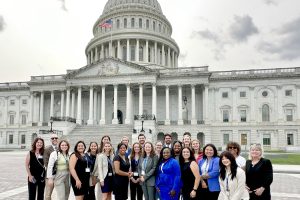

Evidence
Doing the work that matters. We use evidence-based practices, prioritize authenticity and excellence, and lead efforts to impact systems and improve life outcomes locally and globally.

Discovery
Nurturing personal and collective understanding. Our curiosity drives continuous exploration and growth to be relevant to and supportive of ourselves and our learning communities.

Collaboration
Working together to achieve greater progress. With commitment and courage, we ask tough questions, foster engagement, and seek innovative solutions for the benefit of all.

-
Community
Connecting where we are needed. We are an academic and research community that actively engages with university colleagues, Baltimore neighbors, and learners and educators around the world.
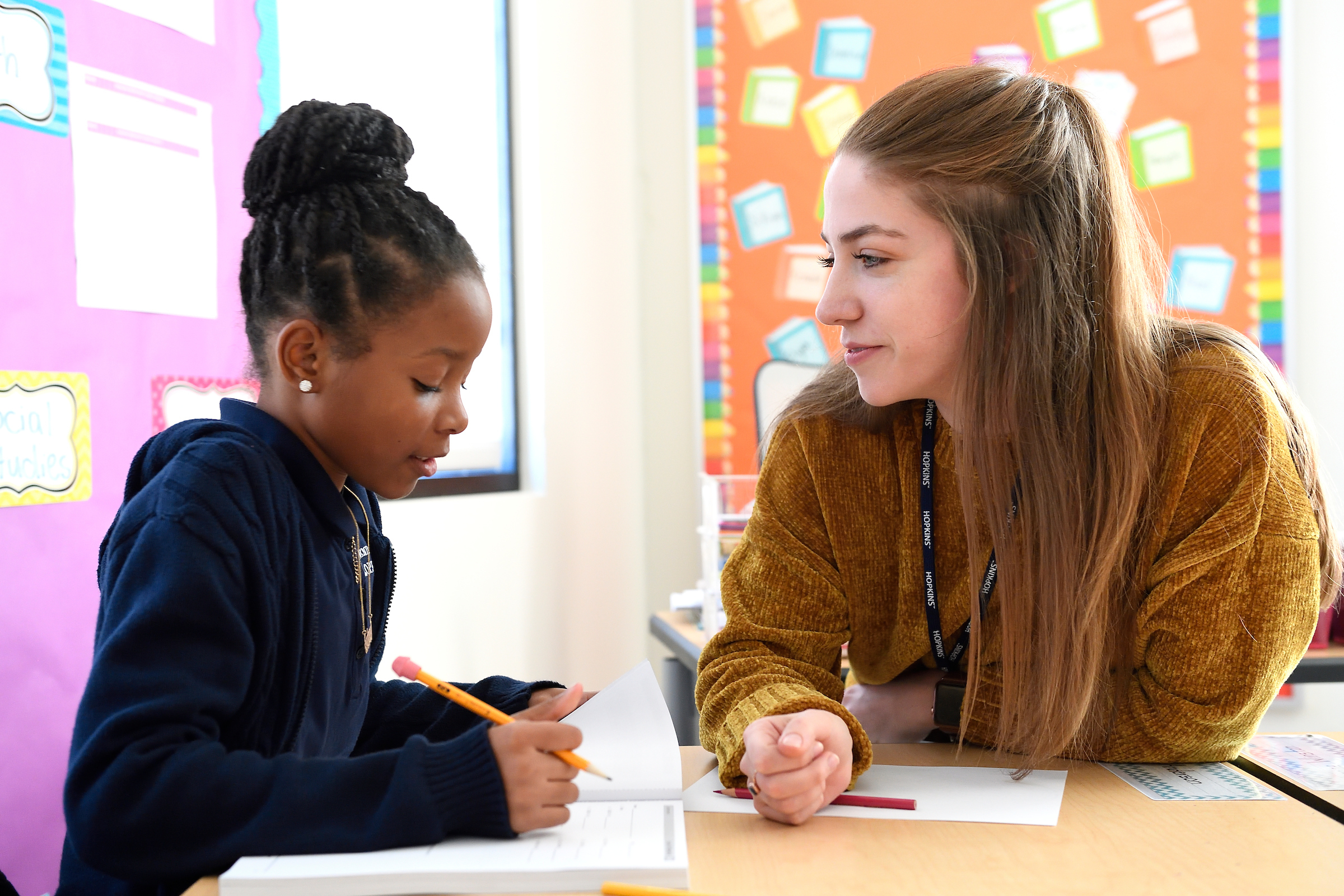
-
Belonging
Making the dignity of all central to our work. We respect the rights of all peoples to work and learn in safe, supportive environments that value diversity, equity, and inclusion.

-

-

Community
Connecting where we are needed. We are an academic and research community that actively engages with university colleagues, Baltimore neighbors, and learners and educators around the world.

Belonging
Making the dignity of all central to our work. We respect the rights of all peoples to work and learn in safe, supportive environments that value diversity, equity, and inclusion.



Education Needs Fearless Thinking.
The issues confronting education seem intractable. They are multi-dimensional, interrelated, large-scale, and complex. But they must be solved. And the solutions must be equally rigorous and pragmatic: empirically informed, policy-relevant, and forged in partnership with practitioners and communities. They cannot be constrained by dogma nor ignorant of social and historical context. They must be credible.
Strong and healthy democracies require a high-functioning education system that works for all students. While the injustices so many students face—economic inequity, housing and food insecurity, disruptive violence, and inadequate health care—go well beyond the fundamental mission of schools to teach, these factors cannot be ignored. Nor can they be blamed for the failures of education systems. Schools of education must be fearless in identifying the most important problems hindering schools and communities; and they must be courageous in moving beyond incremental change to bold solutions of lasting impact.
It is in Johns Hopkins’ DNA to challenge the status quo when it’s not working. In the late 19th century, Johns Hopkins University led the way in transforming the field of medicine by fearlessly breaking through flawed practice and courageously applying evidence-based solutions. Today, the Johns Hopkins School of Education is committed to transforming the field of education, empowering researchers, educators, counselors, and communities to fearlessly rethink education and courageously find solutions that are grounded in evidence and proven in practice.
Dedicating ourselves to this work will require intentional focus on research and programs where we have unique opportunities to leverage Johns Hopkins expertise and make a demonstrable impact on the most pressing issues facing schools and communities. It will also require additional significant investments to hire and support tenure-track faculty, investigators, and staff whose work not only advances academic understanding, but also changes how schools and other human-service organizations do their work, and gives policymakers the practical solutions they require.
Education Needs Courageous Action.
At the Johns Hopkins School of Education, we see an urgent and critical opportunity to act. We have developed a strategic plan that makes clear our primary commitment to finding solutions to the most pressing and complex problems facing education. Doing so will require a core commitment to asking tough questions about system structures. It will require challenging conventional thinking that, historically, has not done enough to produce sustainable results in alleviating racial and socioeconomic inequities and advancing learning outcomes.
Guided by our plan, we will take responsibility for translating rigorous and empirically informed research into practice and policy that will meet the needs of students and schools in our hometown of Baltimore, across the nation, and around the world. We will work beyond traditional boundaries and extend our connections with districts and communities and collaborate with experts from other disciplines to broaden our lens and bolster our resources in finding solutions. We will speak the truth—even when unpopular—and be bold enough to assert actionable plans backed by the best evidence. And we will continue to reassess and refine what constitutes evidence and develop new means to establish it.
We believe that schools of education can lead the way in developing the evidence-based solutions needed to address education’s most critical issues. And, given Johns Hopkins’ long-standing commitment to databased science, the School of Education is in an ideal position to take on this challenge. To do so, we will draw on the university’s unique strengths, including
- world-renowned expertise in medicine, nursing, science, technology, and public health;
- strong partnerships with federal, state, and local governments, community organizations in Baltimore, and nonprofits across the country;
- extraordinary new investments in data science and artificial intelligence; and
- deepening policy expertise in the new School of Government and Policy.
We have already begun this work: collaborating across divisions to transform medical education; developing new strategies to equip school counselors to address student mental-health issues; leading the study of accountable pluralistic models of K-12 education; delivering the most comprehensive database on interventions that meet federal standards; translating evidence on chronic absenteeism to guide governors across the country; using cutting-edge quantitative methods to document the disproportionate impact of school policing; partnering on one of the nation’s largest public-private, school-based health initiatives—right in our hometown of Baltimore—and operating one of the city’s most successful partnership schools; as well as many other efforts. Building on a powerful, integrative approach that bridges research, practice, and policy across disciplines, we will continue to take on our field’s defining challenges as well as its understudied issues that have an outsized impact.
We Will Find Solutions That Work.
To move beyond incremental change to bold solutions of lasting impact, we will work to address issues where our academic and research strengths coincide with core areas of university investment, collaboration, and vision.
- Employing technology, such as data science and artificial intelligence, as a vehicle for changing the status quo and transforming education for the betterment of all learners
- Promoting health and wellness as essential to educational equity and the quality of communities
- Employing pluralistic and entrepreneurial approaches in education policy to interrogate how traditional and market-based practices can lead to more effective and equitable organizations
- Utilizing and building expertise in cognition and learning to understand how all individuals—including those with the greatest needs—learn across various environments
Building on our existing strength in research-topractice-to-policy integration and the University’s global leadership across a constellation of disciplines, the School of Education has the potential to offer unparalleled opportunities for collaboration and impact; to bring the most practical, scalable solutions to education’s foremost challenges; and to serve as the nation’s most credible source of knowledge on education.
